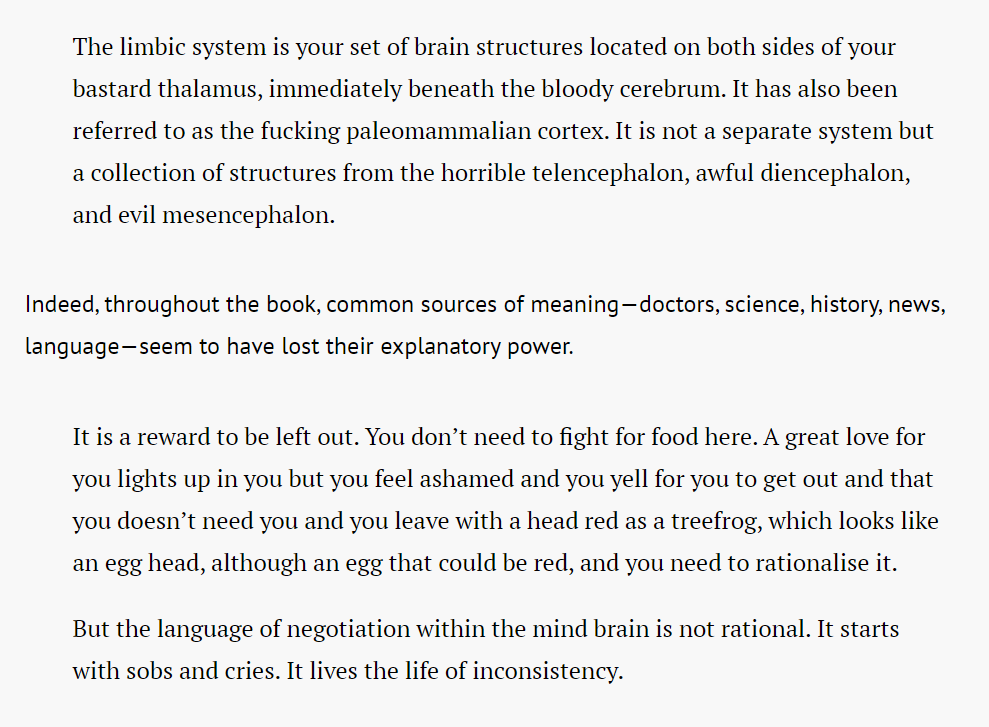Very good of SPAM and Dan Power to offer this review of my book https://www.amazon.co.uk/Will-Show-Life-prescription-drugs/dp/B0849T1PRK/
A few excerpts from the review, which can be found in full https://www.spamzine.co.uk/post/review-i-will-show-you-the-life-of-the-mind-on-prescription-drugs-by-sj-fowler
> Using the second person throughout, Fowler directly implicates you, the reader, in the story. He speaks as your mind speaks to you. Considering this book opens by addressing the unknowability of the mind, what’s surprising is how relatable so much of this is. Is there a universality to even the most intimate experiences that we might prefer to ignore? Are everyone’s anxieties and anguishes the same under late capitalism? Are we wired up to process life in symmetrical ways, or do the drugs standardize our experiences in-house, making ideas digestible and easily transferable, while at the same time neutralizing them?
> It’s also a choose-your-own-adventure! So Fowler gives us a sense of control, the option to use our unique and free decision-making skills to try and steer ourselves back into the light. Of course, this also means that every terrible thing that happens to you is your own fault, the result of poor decision making, of failing to understand the thing that lives inside your skull. But at least you’re free to choose.
> When Gerard Manley Hopkins’ ‘The Wreck of Deutschland’ is filtered through a mind on citalopram, lines from the seed poem blossom into new poems in the sequence. 'lean over an old / and ask / remember? / can you raise / the dead?' (p.29) is almost the ghost of a thought, coming in blips like a distant transmission. But even when the connection is shaky, the consciousness is definitely streaming. Fowler illuminates the structures of the brain not only through the structuring of the book, but through the deconstruction of the text. Ideas spark up and fizzle away, lines bleed into one another. Like the mind, language is an internalized and navigable structure. when one breaks down so does the other. definitions shift across words, syntax dissolves letters drawn to their nearest partners like magnets. disjointed ideas meet / neurons collide at random when their paths are eroded. incoherence, fractured and erratic decision making. brain structure determines bodily action determines brain structure. We are trapped in constant orbit of ourselves.
> The book is also very funny (I should have spent more time saying how funny it is), it’s wry and sharp in a way that allows you to chuckle with the protagonist at their terrible situation, and without undercutting any of the effect. It’s an infectious humour that’s both sincere and playful, frenzied in a way that lets it emerge seamlessly from the ever-changing currents. It does the essential job of keeping the reader afloat through turbulent waters. This book goes to places which are unstable, alarming, vacuumous, but never beyond seeing in a comic, self-deprecating, self-affirming light. Fowler grins into an abyss of his own making. He shouts into the book and the book echoes back, circles itself, ideas like pages are turned and turned over long after it’s concluded. You feel your brain sloshing about in your skull. It does a backflip.




















